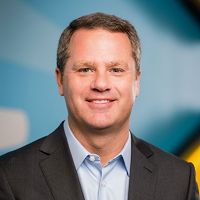

Quotes By Doug McMillon

Businessman
Doug McMillon
Oct 17, 1966 - present
The most coveted workers will always be those with the flexibility to combine soft skills with technical skills.
My dad was a dentist and he moved us across the state of Arkansas to open a dental practice, and then told me to get to work to pay for college and the highest paying job in Bentonville, Arkansas in 1984 was Walmart Warehouse at $6.50 an hour compared to McDonald's at $3.35, so I chose Walmart.
I think real estate is really core, but you just nailed why I'm still here and loved retail - it's because of the breadth of it. I didn't appreciate how interesting retail was until I got started. You have to have a customer relationship, but you need leadership skills, servant leadership characteristics.
There are all these things that add up into this business that's Walmart that keeps it really interesting. At the root of it all, though, it's a people business and it's a merchandising business. Today, it's increasingly a technology business. The supply chain is critical, of course, and real estate still plays a key role.
Today, Walmart employs about 2.1 million associates. The vast majority of our management team started as an hourly, just like I did. If you walked around here, not just here in Arkansas, but around our company, you would find a lot of people with more than 20 years of service, and you'd find a lot of people who've joined the company to climb up the ladder and create opportunities for themselves.
Don't take your current job for granted; the next job doesn't come if you don't do the one you've got, well.
Be a great teammate - you learn how to lead, you learn how to influence by the way you interact with your peers, treat them well, help them, help them do a better job.
Volunteer for something extra, volunteer for something hard. One of the reasons that I got the opportunities that I got was that I would raise my hand when my boss was out of town and he or she was visiting stores or something, and someone needed to pinch hit and go to a meeting, I would go, and if I knew the answer to the question that came up, I'd share it, if I didn't, I'd say, "I don't know, but I'll find out fast and get back to you." I then put myself in an environment where I became a low risk promotion because people had already seen me do the job.
I really love retail history. We started our first Supercenter in 1988, prior to that we were operating general merchandise discount stores, and we tried some big hypermarkets copied from Europe and they had failed miserably, but we tried to downsize it and make it a Supercenter and it started working.
I think we've seen it all. The e-commerce store is the interesting one.
As it relates to brick-and-mortar, we've seen it all and done it all. We operate around the world in different formats, different brands. We've got large stores, small stores, all these different formats. So we know that space pretty well, but the e-commerce business was different.
Retail is detail, and that plays out throughout the international business as well. Today's portfolio has got omnichannel businesses in Mexico, Central America, Canada, China, but we also have an e-commerce marketplace in India with Flipkart and our financial services business in India, PhonePe - those are a bit different, but the other markets have a lot of commonality strategically.
If you fast-forward through the years, there was a period of time when there was too much debate inside the company about the significance of e-commerce, there were leaders who believed it would never be any bigger than the catalog business, there were leaders that believed it would never be profitable.
There were several people that realized the customer is telling us something and the idea of a broad assortment delivered to your home is appealing.
Everybody loves convenience, everyone wants to save time. But we had built a business called the Supercenter business that was one stop shopping that helped people save time and you had instant gratification because you could walk in the Supercenter and you could get 120,000 SKUs, and they were the best items from around the world.
Always thinking about the customer value proposition is including price, assortment, experience, and trust, and all of those have been changed by technology and been changed by e-commerce, and so leading up to the moment when I took this role, there was an understanding that we needed to invest in e-commerce, grow e-commerce, but we didn't take it seriously enough.
If you think that a store e-commerce business is the answer, you end up thinking that a population of less than a million items is enough, and you end up thinking that you don't need an e-commerce marketplace, and you end up thinking other things.
The stores are an asset, and they have a great assortment in them and they're close to people. Being within 10 miles of 90% of America is a huge advantage, especially with fresh food at a good price. But we must also, if you think long-term and you think about what the company wants to accomplish, you must have a big and important first-party e-commerce business, and you must have a marketplace, and the things that go along with the marketplace.
I've drank all the Kool-Aid and am completely convinced that Walmart should be here for the next generation of retail, because we're so wired to fulfill our purpose of helping people save money and live better.
By the time we got to 2020, we had leaders that had a stronger digital acumen, e-commerce set of capabilities and beliefs.
Popular Authors









